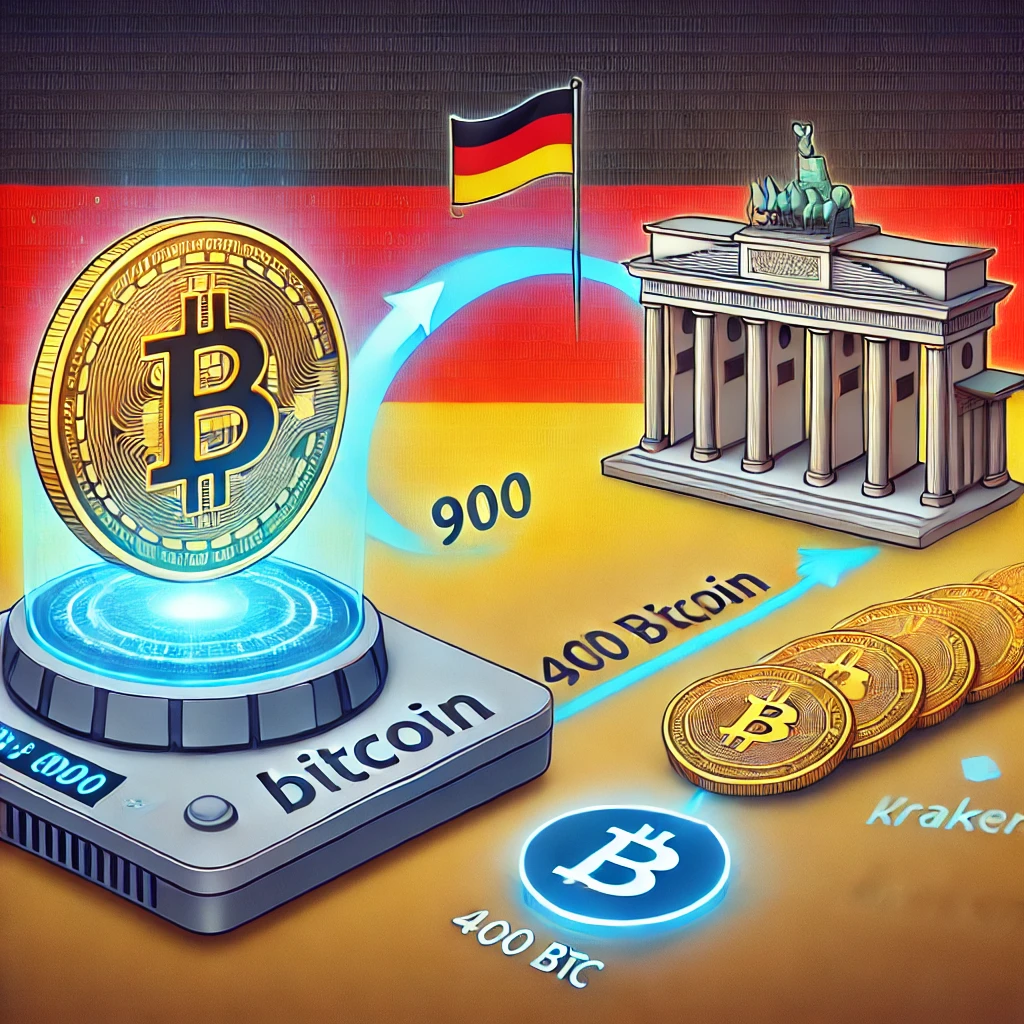
The German Government, via a cryptocurrency wallet labeled by the Bundeskriminalamt (BKA), has conducted significant transactions involving over $54 million worth of Bitcoin. These operations took place in three distinct transactions on June 25, impacting the market and stirring discussions about potential price movements.
Details of the Bitcoin Transactions
The breakdown of these transactions is as follows:
- First Transaction: 200 BTC sent to the Coinbase exchange.
- Second Transaction: 200 BTC transferred to the Kraken exchange.
- Third Transaction: 500 BTC, valued at over $30 million, sent to an unidentified wallet labeled “139Po.”
The destination of the third transaction, wallet “139Po,” remains a mystery. However, this isn’t the first interaction with this wallet by the German government. Historical transactions include:
- 800 BTC sent on June 20.
- 500 BTC transferred on June 19.
Despite these substantial disbursements, the government-labeled wallet retains a significant Bitcoin reserve:
- Current Holdings: 46,359 BTC.
- Estimated Value: Over $2.8 billion.
This reserve holds the potential to exert considerable selling pressure on Bitcoin’s market price, particularly if further large-scale sales occur.
The ongoing transactions have coincided with a downtrend in Bitcoin’s price:
- Monthly Decline: 11%.
- Weekly Decline: Over 7%, with prices hovering just above $61,000 as of the latest updates.
Willy Woo, a well-regarded cryptocurrency analyst, has expressed a cautious outlook for Bitcoin’s immediate future. According to Woo, Bitcoin may need one to four weeks to stabilize before any significant price rally can resume. His analysis, shared with over 1.1 million followers, highlights the current speculative intensity affecting the cryptocurrency’s valuation.
The recent activity of the German government’s Bitcoin wallet first drew attention on June 19, following a transfer of 6,500 BTC valued at over $425 million. The bulk of these transfers to centralized exchanges suggests a strategic liquidation stance, likely related to the proceeds from seized assets.
Background of the Seized Funds
The origin of these funds is linked to the takedown of the pirated movie website, Movie2k. This operation resulted in the seizure of nearly 50,000 BTC in February 2024, which the government has since begun to methodically liquidate.
Looking ahead to July, the cryptocurrency market may face additional selling pressures. The collapsed exchange Mt. Gox has announced plans to begin repayment to its creditors, potentially releasing over $9.4 billion worth of Bitcoin into the market. This development could impact approximately 127,000 creditors, many of whom may choose to sell their newly returned assets.
| Date | Amount (BTC) | Destination | Purpose |
|---|---|---|---|
| June 19 | 500 BTC | Wallet “139Po” | Unknown |
| June 20 | 800 BTC | Wallet “139Po” | Unknown |
| June 25 | 200 BTC | Coinbase | Likely Liquidation |
| June 25 | 200 BTC | Kraken | Likely Liquidation |
| June 25 | 500 BTC | Wallet “139Po” | Unknown |
The German government’s strategic management of its Bitcoin assets highlights the intricate relationship between large-scale asset holders and the broader cryptocurrency market. The decisions made by such entities can have profound effects on market dynamics and pricing, underscoring the interconnected nature of global financial systems and digital currencies.
Featured image credit: DALL-E by ChatGPT
